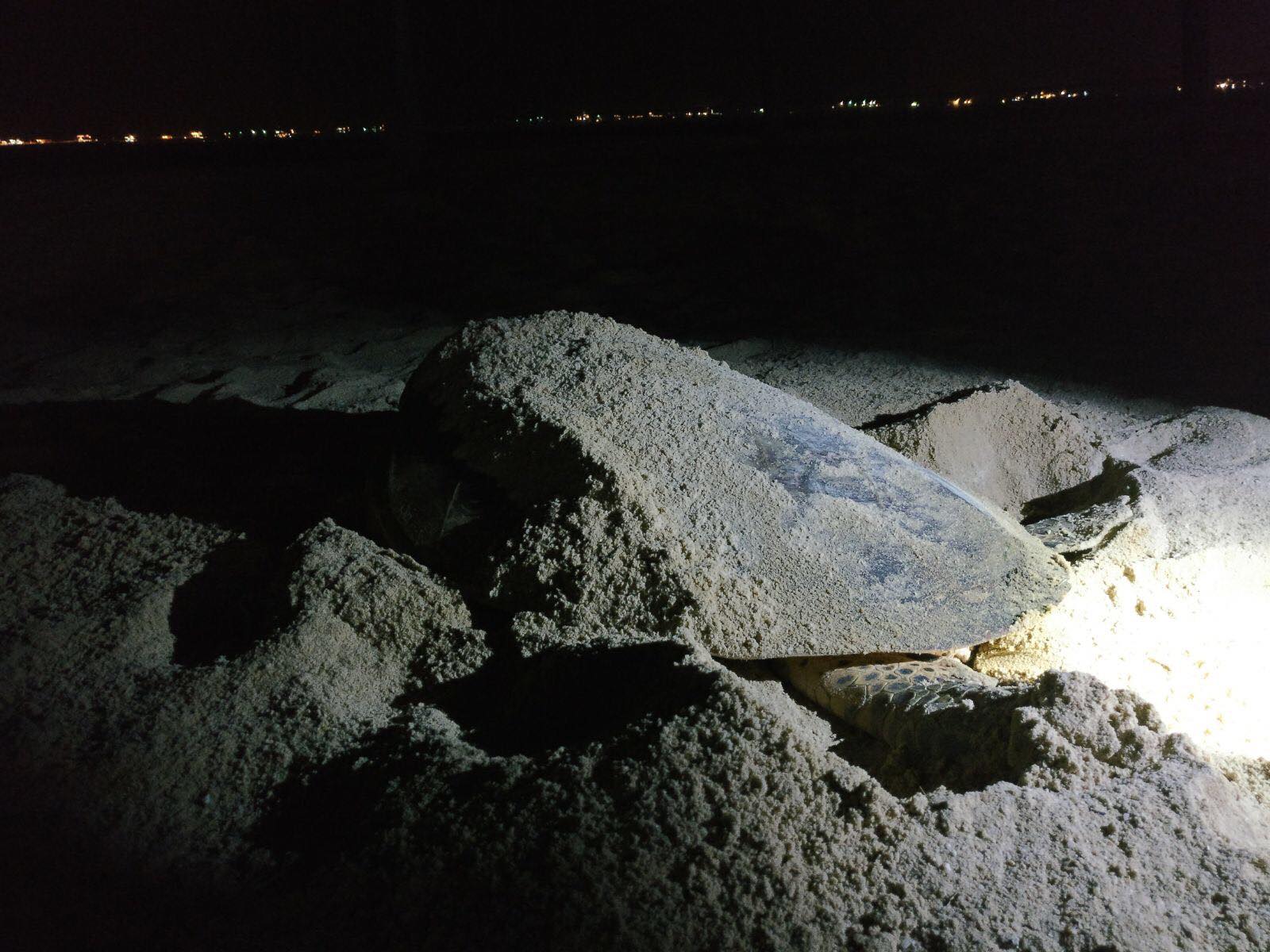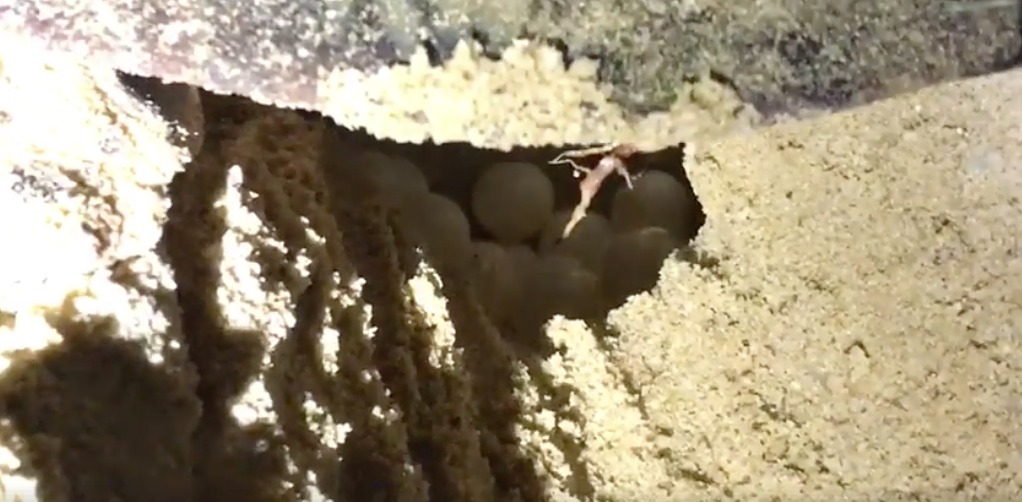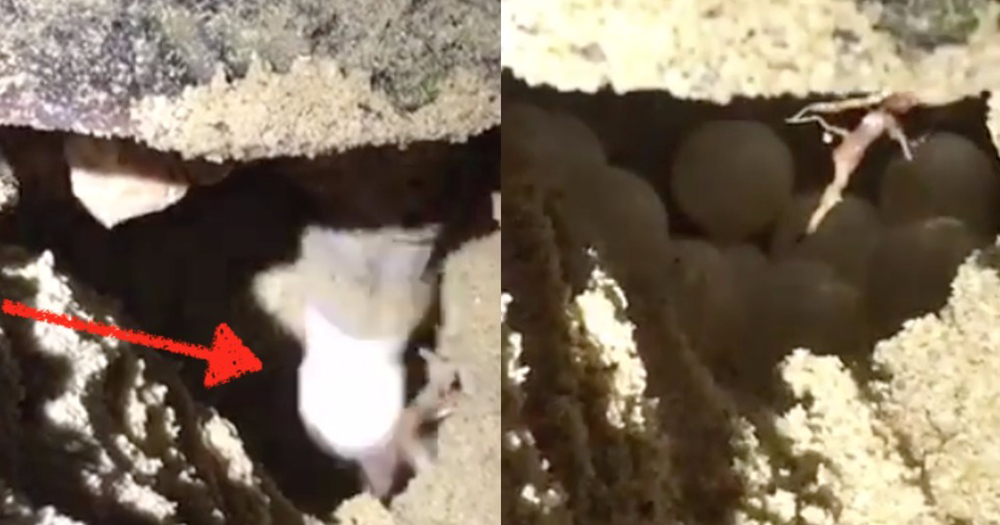Last Wednesday, a group of more than 30 Hawksbill turtle hatchlings made their baby steps towards the sea for the first time with the help of some kind hoomans at East Coast Park.
It was a rare sighting for most of us, despite the fact that mummy Hawksbill turtles do come ashore at East Coast Park to lay eggs in the sand on a regular basis.
While this is true, we still wouldn't have expected a mother Hawksbill Turtle to return this evening (Wednesday, 24 Aug), exactly a week after we saw the batch of cute little ones.
Here's the post from NParks about it:
NParks officers even managed to take footage of the egg-laying process:[related_story]Thanks to considerate park users, and the watchful eye of NParks officers, this mama Hawksbill probably enjoyed the ambience and privacy of East Coast Park's beach as she settled down to lay her eggs.

According to NParks, Hawksbill turtles usually mate every two to three years.
Female Hawksbill turtles then choose a sandy beach to lay eggs, usually at night.

She can lay up to 200 eggs at a time.
Besides documenting the Hawksbill Turtle egg laying process for data collection purposes, the NParks officers also measured the tracks made by the mother Hawksbill turtle as she returned to the sea.
A speedy task for mama Hawksbill.We've asked NParks if they have taken any measures to protect the eggs while in their two-month gestation period, as this wasn't clear from their post.
Here's what Dr Karenne Tun, Coastal & Marine director at NParks's National Biodiversity Centre, had to say about this:
"Yesterday evening (23 August), a female Hawksbill Turtle was spotted laying eggs at East Coast Park. NParks was alerted to the sighting by a member of the public and arrived on the scene within half an hour to monitor and document the process for research and data collection purposes.
Based on existing turtle management procedure, when a turtle sighting is reported, the area will be assessed by an NParks officer and steps will be taken to minimise disturbance to the nest. In this case, we kept the place dark and quiet while the turtle was trying to find a suitable area to dig the hole. Once the turtle started laying her eggs, lights were used, from the back, to monitor the egg laying process and for data collection purposes. NParks was careful to avoid directing the light at the turtle’s face to minimise disturbance to it.
Once the turtle had completed laying its eggs, trained NParks officers conducted a risk assessment of the nest site.
Based on factors such as the proximity to the shore, the amount of light pollution and foot traffic, NParks assessed that the site posed a high risk to the nest. Following best turtle management practices, we have translocated the 141 eggs to a more suitable spot with less foot traffic and low light pollution. We will continue to monitor the eggs closely.
We would also like to take this opportunity to remind members of the public to contact the NParks helpline (1800-471-7300), and to keep their distance and speak softly when a turtle is sighted. Touching the turtle may scare or provoke it. Similarly, one should not handle the eggs as that might damage them."
So, unlike what the officers were doing — shining flashlights and going really close to the turtles — if you ever spot a turtle at East Coast Park, especially on the beach, please keep your distance and do not disturb them.
Hawksbill Turtles are now globally critically endangered, and that's a bad thing particularly because they're important to the health of coral reefs.
In case you missed out the action with the baby turtles flapping their way into the sea last week, here's the clip of them wading towards the sea:
The Hawksbill turtle eggs usually hatch after two months of gestation, so we might see another batch of little ones soon!Related article:
S’poreans team up to usher 32 critically-endangered turtle babies to the sea from East Coast Park
Top photo collage from screenshots of NParks Facebook video
If you like what you read, follow us on Facebook, Instagram, Twitter and Telegram to get the latest updates.
